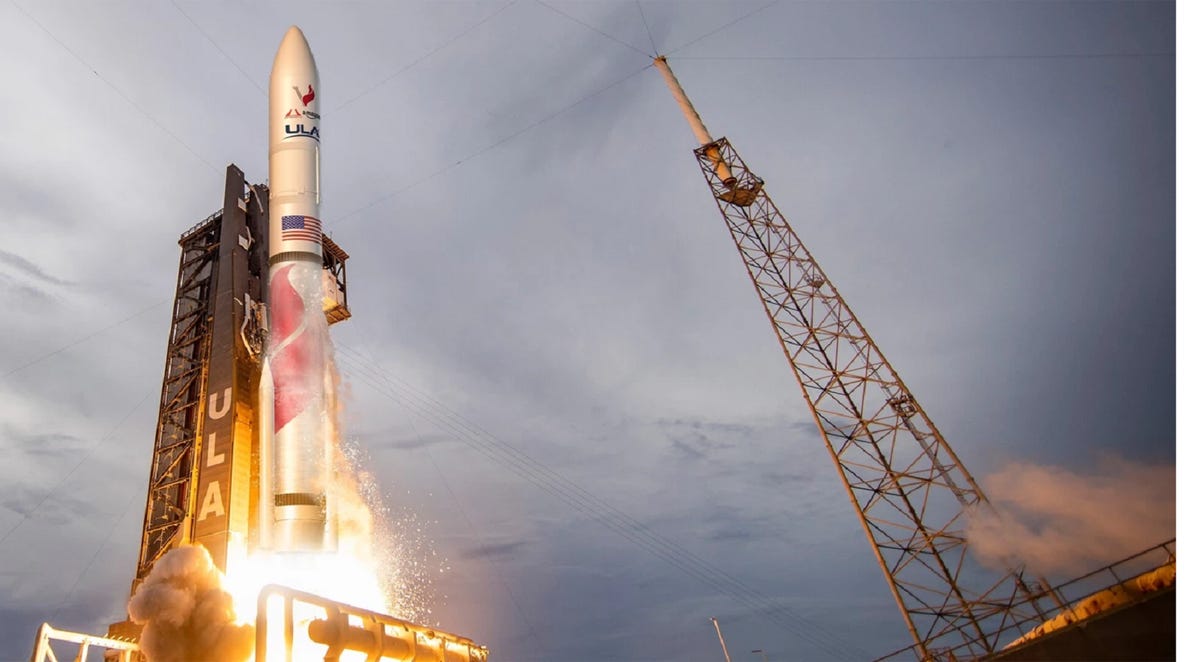Amazon’s Project Kuiper plans to launch prototype satellites in early 2023

Amazon is getting closer to launching Project Kuiper, a satellite system that aims to provide fast, affordable broadband to customers globally. But before it can actually deploy its large-scale satellite constellation, Amazon has to test different elements of the satellite network in space.
To that end, Amazon announced Wednesday that it's working with the company United Launch Alliance (ULA) to send two prototype satellites into space. The satellites Kuipersat-1 and Kuipersat-2 will be completed later this year and will hitch a ride on the first flight of ULA's new Vulcan Centaur rocket in early 2023.
Amazon initially planned to send its two prototypes into space on ABL Space Systems' new RS1 rocket, which has been beset by delays.
Also: Soon, your Amazon Echo Dot will serve as an Eero Wi-Fi extender
The prototype mission will help Amazon learn how the different pieces of its satellite network work together, supplementing its on-the-ground testing with real-world data from space. “We'll use findings from the mission to help finalize design, deployment, and operational plans for our commercial satellite system,” Amazon said in its release.
Launching the prototypes on Vulcan Centaur gives Amazon the added benefit of using the same launch vehicle that will deliver some of the first production Kuiper satellites. ULA is slated to provide 47 launches for Amazon's Kuiper satellite constellation.
“Using the same launch vehicle for our prototype mission gives us a chance to practice payload integration, processing, and mission management procedures ahead of those full-scale commercial launches,” Project Kuiper VP Rajeev Badyal said in a statement.
The first production satellites are actually slated to launch on ULA's Atlas V rocket. After that, Amazon will start using the Vulcan rocket, as well as newer heavy-lift rockets from two other space launch companies, Arianespace and Blue Origin (the rocket company started by Amazon founder Jeff Bezos). It will also use ABL Space Systems for at least two launches.
All told, Amazon has plans to launch a constellation of 3,236 satellites over the course of 92 flights, making it the largest commercial procurement of launch vehicles in history.
The size of Amazon's deals demonstrate the swift growth of the private space industry. As of Jan. 1, 2022, there were only 4,852 operating satellites in space, including 4,078 in low Earth orbit (LEO).
Also: Starlink speeds have slowed as more people sign up, report shows
The Project Kuiper LEO satellite system was announced in 2019, and Amazon currently has more than 1,000 people working on the program. The company expects its existing business operations and areas of expertise to give Project Kuiper some competitive advantages. For instance, the broadband service could leverage Amazon's global logistics and operations footprint for customer service, while Amazon Web Services will provide the networking and infrastructure necessary to serve a diverse, global customer base.
So far, Amazon hasn't tapped SpaceX, Elon Musk's rocket company, to launch any of its satellites. Starlink, SpaceX's broadband satellite service, already has thousands of satellites in orbit and hundreds of thousands of subscribers. Still, SpaceX has committed to launching competing satellites into space.

